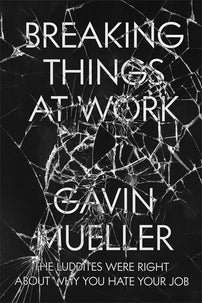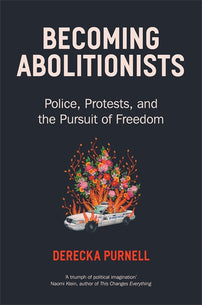The Year in 10 Books
From a world without police to a manifesto for the age of environmental breakdown, we bring you 10 books that have defined this momentous year.

All these books are 40% off as part of our end of year sale. Don't forget, we have bundled ebooks with every print purchase (see below) — meaning you can gift the print book (if you want to!) and start reading the ebook straight away!
[book-strip index="1" style="buy"]In this elegant, searching book—spanning science and popular culture; pornography and literature; debates on Me-Too, consent and feminism—Katherine Angel challenges our assumptions about women’s desire. Why, she asks, should they be expected to know their desires? And how do we take sexual violence seriously, when not knowing what we want is key to both eroticism and personhood?
[book-strip index="2" style="buy"]In this lyrical manifesto, noted climate scholar (and saboteur of SUV tires and coal mines) Andreas Malm makes an impassioned call for the climate movement to escalate its tactics in the face of ecological collapse. We need, he argues, to force fossil fuel extraction to stop—with our actions, with our bodies, and by defusing and destroying its tools. We need, in short, to start blowing up some oil pipelines.
[book-strip index="3" style="buy"]In a future where men are contained in ghettoised isolation, women enjoy the fruits of a queer matriarchal utopia—until a boy escapes and a young woman’s perception of the world is violently interrupted.
In the title story, the tyranny of enforced screen-time and the mechanisation of labour foster a cold-hearted and ultimately tragic disaffection among the youth of Tokyo.
Terminal Boredon is the first English-language publication of the work of Izumi Suzuki, a legend of Japanese science fiction and a countercultural icon. In these darkly playful and punky stories, the fantastical elements are always grounded in the universal pettiness of strife between the sexes, and the gritty reality of life on the lower rungs, whatever planet that ladder might be on.
[book-strip index="4" style="buy"]In the age of environmental breakdown, breakdown, the political status quo has no answer to the devastating and inequitably distributed consequences of the climate emergency. We urgently need an alternative to bring about the rapid transformation of our social and economic systems. As we rebuild our lives in the wake of Covid-19 and face the challenges of ecological disaster, how can the left win a world fit for life?
Planet on Fire offers a detailed and achievable manifesto for a new politics capable of tackling environmental breakdown.
No human has ever gone farther into space than the Moon, a grain of sand about 5.5 inches away from our tiny pea gravel Earth. Are other worlds really possible?
Space Forces is a fascinating radical history of space exploration by Fred Scharmen. From the Russian Cosmists of the 1890s to the technology billionaires who want to colonise space for their own wealth, Space Forces reveals a completely different story of our relationship with outer space, as well as the dangers of our current direction of extractive capitalism and colonisation.
[book-strip index="6" style="buy"]Persuasively argued and lyrically charged, A World without Police offers concrete strategies for confronting and breaking police power, as a first step toward building community alternatives that make the police obsolete.
Abolition is not a distant dream or an unreachable horizon but an attainable reality. In communities around the world, we are beginning to glimpse a real, lasting justice in which we keep us safe.
[book-strip index="7" style="buy"]Postmodernism stood for everything modernism rejected: fun, exuberance, irresponsibility. But beneath its glitzy surface, postmodernism had a dirty secret: it was the fig leaf for a rapacious new kind of capitalism.
In this brilliant history of a dangerous idea, Stuart Jeffries tells a narrative that starts in the early 1970s and still dominates our lives today, encountering David Bowie, the iPod, Madonna, Judith Butler, Margaret Thatcher, Grand Master Flash, I Love Dick, and Jean Baudrillard along the way.
[book-strip index="8" style="buy"]We are told that the future of work will be increasingly automated. Algorithms, processing massive amounts of information at startling speed, will lead us to a new world of effortless labour and a post-work utopia of ever expanding leisure. But behind the gleaming surface stands millions of workers, often in the Global South, manually processing data for a pittance.
Work Without the Worker reveals the brutal truth behind our automated futures and the new world of work.
[book-strip index="9" style="buy"]In the nineteenth century, English textile workers responded to the introduction of new technologies on the factory floor by smashing them to bits.
Breaking Things at Work is an innovative rethinking of labour and machines, leaping from textile mills to algorithms, from existentially threatened knife cutters of rural Germany to surveillance-evading truckers driving across the continental United States. Mueller argues that the future stability and empowerment of working-class movements will depend on subverting these technologies and preventing their spread wherever possible. The task is intimidating, but the seeds of this resistance are already present in the neo-Luddite efforts of hackers, pirates, and dark web users who are challenging surveillance and control, often through older systems of communication technology.
[book-strip index="10" style="buy"]* PLEASE NOTE: THIS BOOK IS NOT PUBLISHED BY VERSO IN NORTH AMERICA
"Most Black people I know trust the police; they trust them to be exactly what they have always been: violent."
Derecka Purnell confronts the history of policing as a means to capture runaway slaves and uphold white supremacy, a practice persisting today in the policing and murder of Black people, poor people, and disabled people on modern city streets. She argues that the worst of policing is the purpose of policing and that we need new systems to address the root causes of violence.
Becoming Abolitionists will inspire readers to create new communities where safety, equality, and real justice for all can thrive.
Further Reading
40% off all our books! See more here
Radical Futures: books to help us re-imagine new futures






